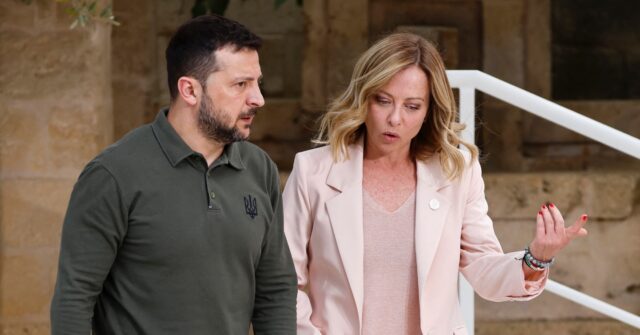As the G7 nations marked 1,000 days since Russia’s invasion of Ukraine, they reaffirmed their enduring support for the embattled country, committing to assist Kyiv “for as long as it takes.” Under the leadership of Italian Prime Minister Giorgia Meloni, currently holding the G7 rotating presidency, a unified statement was adopted by the leaders of Canada, France, Germany, Italy, Japan, the United Kingdom, and the United States, which emphasized the profound commitment to helping Ukraine defend its sovereignty, independence, and territorial integrity. The G7 recognized the severe humanitarian impact caused by Russia’s aggression, underscoring the resilience and determination shown by the Ukrainian people in the face of adversity.
In a strong declaration, the G7 leaders noted the immense suffering endured by Ukraine’s citizens over the past 1,000 days of conflict. The statement acknowledged that Russia’s actions are the primary barrier to achieving a just and lasting peace, and confirmed the group’s commitment to imposing severe consequences on Russia through sanctions and export controls. This display of unity and solidarity was further amplified amid ongoing diplomatic maneuvers for potential peace talks between the conflicting nations. Speculation has emerged surrounding efforts by U.S. President-Elect Donald Trump, who may seek to negotiate a compromise involving military support for Ukraine, a demilitarized zone, and territorial concessions to Moscow.
Ukrainian President Volodymyr Zelensky remains resolute in his demand for complete Russian withdrawal, including from Crimea, making it clear that such withdrawal must be a pre-condition for any peace negotiations. Despite this tough stance, Zelensky expressed a desire to explore diplomatic avenues to end the war, stating his intention to exhaust all means to achieve peace in the upcoming year. His remarks were underscored by a call for Western leaders to ensure that Ukraine is actively involved in any discussions regarding its future, as any negotiations perceived to undermine Ukraine would diminish its strength in the face of Russian aggression.
During his comments, Zelensky indicated frustration with the notion of Western leaders negotiating on behalf of Ukraine without its involvement. He cautioned against discussions with Moscow that did not involve a robust Ukrainian presence, highlighting that any negotiations conducted without a strong Ukrainian position are unlikely to succeed. This sentiment reflects a larger Ukrainian strategy aimed at ensuring that leverage remains solidly in its favor by discouraging back-door dealings that could align against its interests.
In conjunction with Zelensky’s comments, Polish Foreign Minister Radoslaw Sikorski underscored a critical principle: “there can be no decision on Ukraine without Ukraine.” He highlighted the significance of an upcoming meeting of the ‘Weimar Triangle’ involving France, Germany, and Poland, to be attended by representatives from the EU, Italy, the UK, and Ukraine. This meeting is anticipated to be pivotal in shaping the future of European support for Ukraine amid changing political dynamics, particularly in light of Trump’s potential approach towards military funding.
Overall, the G7 reaffirmation of support and the ongoing diplomatic dialogues depict a complex and evolving landscape in the Ukraine conflict. As stakeholders navigate the path toward potential negotiations, the emphasis on unity and Ukraine’s involvement illustrates an understanding that any resolution must prioritize the nation’s needs and sovereignty, ensuring that it is not sidelined in the global dialogue concerning its fate.

